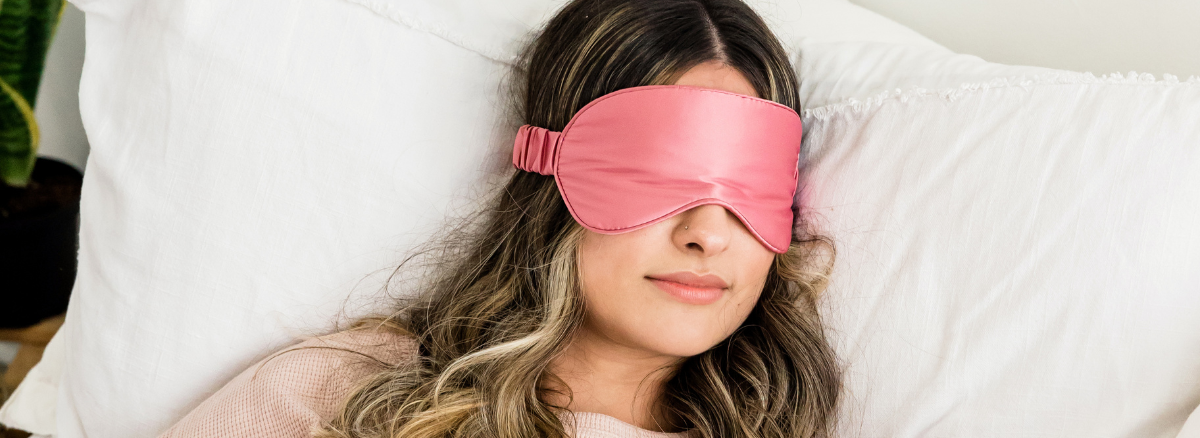Struggling with Sleeping Disorders? Is Melatonin safe for sleeping disorder treatment? In a world that never seems to sleep, many of us find ourselves struggling to find the restful slumber we so desperately need. Enter melatonin, a natural hormone produced by the pineal gland in our brains. It plays a crucial role in regulating our sleep-wake cycles, often referred to as our circadian rhythms. Melatonin has become a household name in the realm of sleep aids, but what exactly is it, and how does it work? In this blog, we’ll delve into the science behind melatonin, its role in our daily lives, and explore the many ways it can help us achieve a peaceful night’s rest. So, let’s embark on a journey through the fascinating world of melatonin and discover how it can be our ally in the quest for better sleep.
What’s the buzz about Melatonin!!
We all are aware of the importance of good sleep for our overall good health. It’s often addressed as beauty sleep, 6-8 hours of restful sleep is considered as an essential requirement for a glowing complexion. One sleepless night has a significant impact on the skin, so you can well imagine the havoc created by many sleepless nights. This can lead to under eye dark circles and dull complexion. No wonder that everyone is looking for solutions for a few hours of good, restful sleep at night.
How to Overcome Irregular Sleeping Habits
The most common reason for disturbed sleep is bad lifestyle and stress, with irregular sleeping habits. Sleep is often disturbed in people doing night shifts and in times of jet lag. The best natural way to overcome this is to follow a healthy lifestyle, making life stress free.
This can be achieved by:
- Regular Exercise Routine
- Meditation
- Deep Breathing
These help the body, mind and soul to relax with the release of good hormones also known as happy hormones.
Medications for Sleeping Disorder Treatment
Along with the lifestyle changes, there are a number of medications available, a few are prescription based, recommended by the doctor which are sedatives and anti anxiety medicines. There is a sudden rise of over the counter medicines, popular as sleep pills or sleep supplements and the main amongst these is melatonin.
There is a sudden hype about melatonin, everyone is talking about it. The market for sleeping pills has become a million dollar industry, there is a huge jump in the sales of melatonin, which is freely available, it doesn’t fall under the category of sedative/psychotic medicines. Melatonin doesn’t carry a taboo as do the other sedative/anxiety medications, rather I have seen people boast about that they are taking melatonin for their beauty sleep.
Surprisingly there is no Food and Drug regularization of these medicines. It’s a free market for these sleep supplements, with no check on the dose. The long term use of these medicines can have side effects and similarly the high doses of melatonin in these sleep supplements, will disturb the normal sleep-wake pattern. We need a better understanding of melatonin.
Melatonin: What is it?
Melatonin is a hormone ecreted by the pineal gland, it’s commonly known as the sleep hormone. Melatonin plays a major role in the sleep – wake cycle or the circadian rhythm. The levels of melatonin decrease during the day, as we need to be awake and alert and by the evening, as the darkness sets in, the melatonin levels start to increase, these high levels help us to fall asleep at night. Nature has provided us with this beautiful circadian rhythm in the human body which follows the natural sunrise and sunset pattern, which helps the body to sleep, rest and rejuvenate.
Is Melatonin Safe?
Melatonin is considered to be safe, but we need to be careful and alert about long term use and the dose taken.
- The normal level of melatonin in the body is 0.1 mg at night.
- The sleep supplements available contain 0.1 to 0.3 mg.
- Recommended dose is 0.3 mg. Never take more than 1 mg
- It should be taken for a few days and then stopped.
It’s usually recommended by doctors for
- people on night shift duty
- Airline pilots and other staff
- Jet lag.
Here it’s taken for a few days to get back into the normal sleep – wake cycle, which may be disturbed due to our profession. It’s commonly seen in people who work in the night shifts, say medical, para medical, security personnel and there are many other professions where it’s common to work during the night hours. People traveling to different time zones often face the problem of falling asleep, and for similar reasons, people working in the airline industry. They are advised melatonin for a few days to help them to get back into their normal sleep – wake pattern. It should not be habit forming.
There is so much hype about melatonin, everyone is talking about it. There is a tremendous increase in the sale of these sleep supplements, they are freely available over the counter (OTC). But surprisingly there is no regularization by the Food and Drug Administration (FDA), there is no check on the doses of melatonin in these supplements. Its a free market, the dose of melatonin available in them varies from 1 – 20 mg. Such high doses can have side effects and one must be aware of these.
Side Effects of Melatonin
- Headache
- Nausea
- Drowsiness
- Drug interactions with other medicines
My Advice Would Be:
Being a senior cosmetologist and skin specialist in Ludhiana, I would like to advice you the following:
- Do not take OTC sleep supplements as the dose of melatonin may be too high in comparison to the recommended dose.
- Consult your doctor and follow his/her advice.
- Try to follow the natural sleep – wake sleep pattern, by switching off or dimming the lights a few hours before your bedtime, this will naturally increase melatonin in your body and help you fall asleep.
- Do not use the phone and laptops, do not watch television a few hours (at least an hour before bedtime) before your bedtime. As the blue light from these devices will not optimize the secretion of melatonin from the pineal gland, the low levels of melatonin in the body will not help you sleep.
Also we need to understand that as we get older, the natural circadian rhythm changes leading to altered sleep patterns. As we age, our sleep becomes short and fragmented, we need to understand our body and try to follow the natural process.
Final Words:
In conclusion, melatonin is generally considered safe when used appropriately and for short periods of time to address sleep-related issues. It is a naturally occurring hormone in our bodies, and supplements can offer benefits for those struggling with sleep disorders or disruptions in their circadian rhythms. However, safety concerns arise when melatonin is used without proper guidance or in excessive doses. Potential side effects and interactions with medications underscore the importance of consulting a healthcare professional before starting melatonin supplementation. Ultimately, melatonin can be a valuable tool in promoting healthy sleep, but its safety hinges on responsible usage and individualized recommendations.

